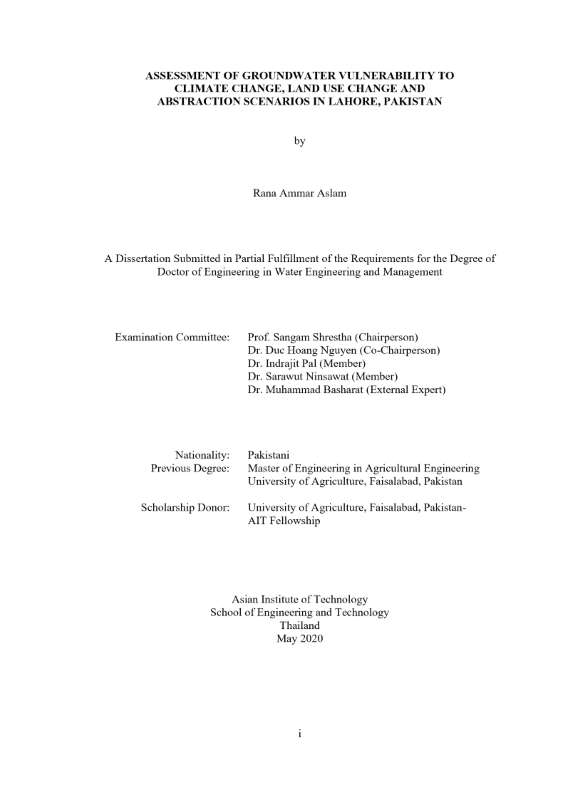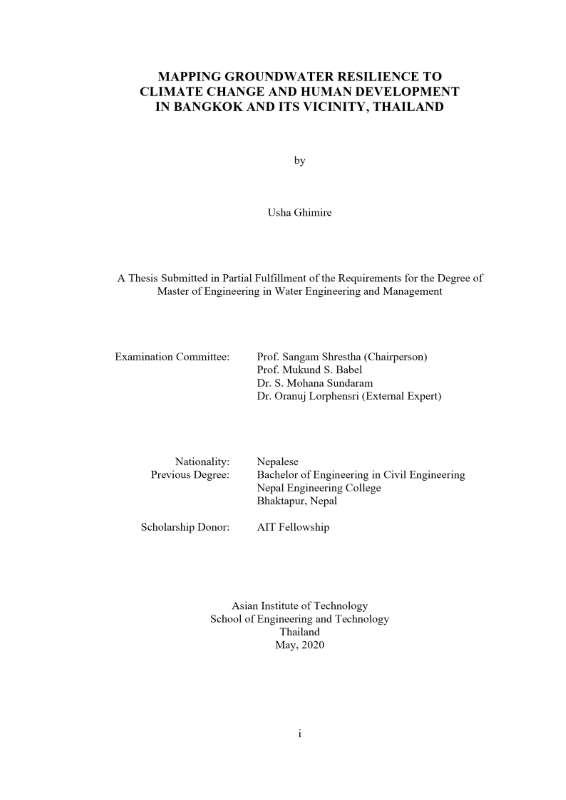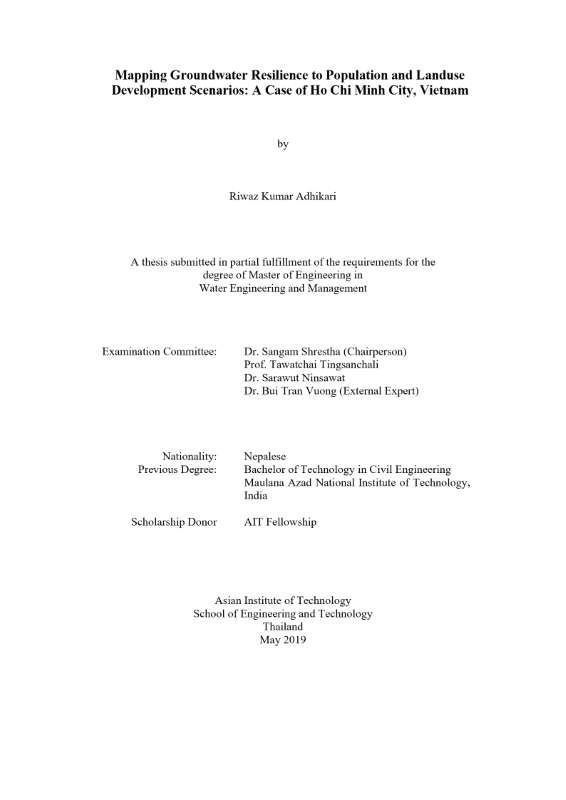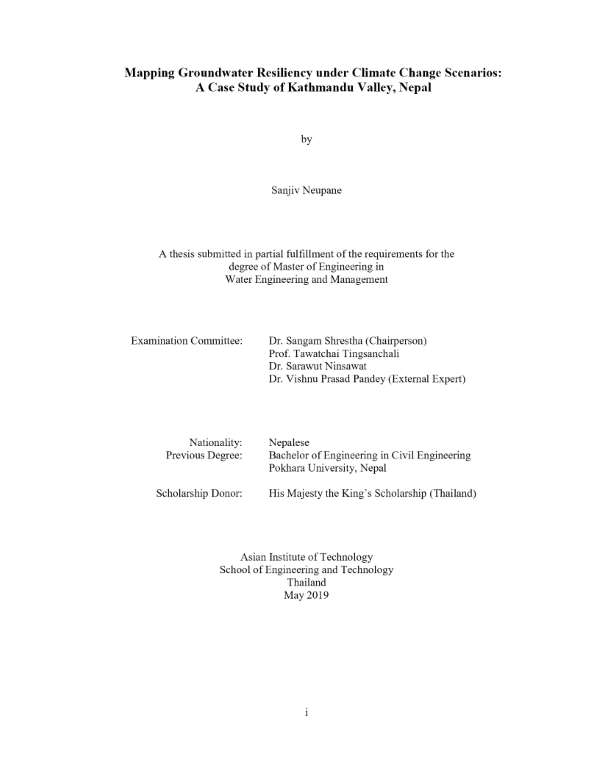
Assessment of Groundwater Vulnerability to Climate Change, Land Use Change and Abstraction Scenarios in Lahore, Pakistan
Urban aquifers are facing increasing pressure from climate change, land use change and abstraction, altering groundwater levels and threatening sustainable water consumption availability and utilisation. Therefore, this study projects future changes of climate, land use and abstraction, while analysing the vulnerability of groundwater levels to such changes and formulating adaptation options to reduce the vulnerability of groundwater resources in Lahore. The objectives are achieved using modelling and qualitative approaches. The results show an increase in mean and extreme climate under climate change scenarios. The warm and wet extremes are projected to increase (significant at P=5%) under medium (RCP4.5) and high



